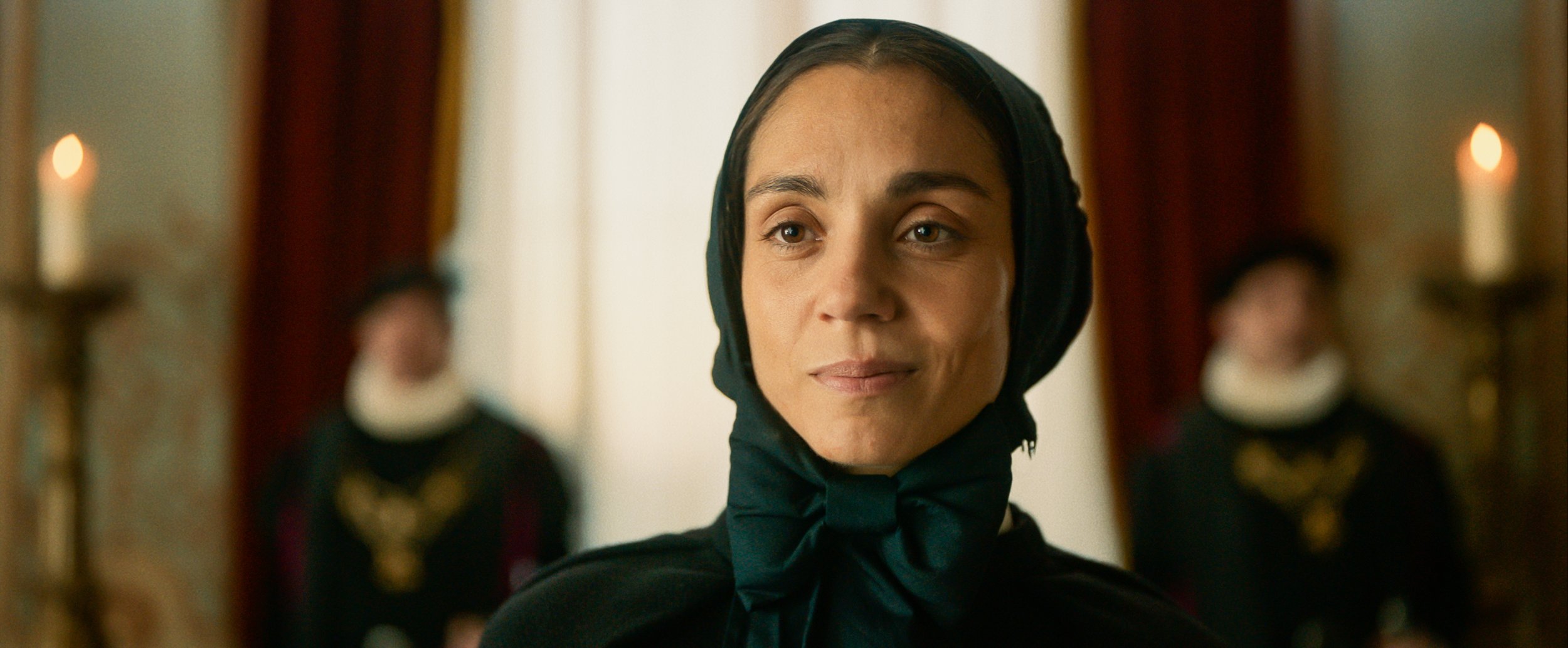Cabrini
Small in stature but big in heart and determined with a specific and heartfelt message, Cabrini is a classic studio biopic (albeit one not made by any studio) lionizing its subject and her accomplishments but also reminding us what is due each other as humans. Diving into the American past, Cabrini ruminates on how far we have and have not come from using racism and prejudice against vulnerable communities and what can be done to help. Rather than lecture to directly on the present, it keeps its focus on the past, recounting the events of Francesca Cabrini’s (Dell’Anna) life with complete sincerity and not a hint of irony or judgment. It was what it was and that’s enough.
And what it was, was a lot. A lifelong missionary with a dream of one day heading to Asia, Cabrini is instead sent by the Vatican to New York where Italian immigrants have been demonized and ignored and struggle daily with poverty, joblessness, disease, and starvation. Diving headlong into the mess, and ignoring her own ill health, Cabrini works not just to bring food and medical attention to a population vilified by the community they live in, but to force that community to accept what is lying its feet. Ignoring hesitancy by the local Archbishop, ignorance by the press and outright enmity by political and financial institutions, Cabrini refuses to buckle. Instead, she drags reporters into the gutter to see with their own eyes how immigrants are living and threatens public shame on bankers and mayors to get policies changed. She becomes a living testament to a refusal to quit.
Yes, it’s a hagiography, but technically she is a saint so at least it fits. Director Alejandro Monteverde (Sound of Freedom) is not looking to make attacks against the system she was part of or find some controversy in her actions. There is no Christopher Hitchens “actually Mother Teresa’s zealotry kept people in poverty” here. Her story is held up as an example of how we should behave rather than how we do -- and not just to others, but for them. Compassion and determination go hand in hand for Cabrini, which means that any conflicts or roadblocks must come from the outside, leaving the nun herself exemplary but flat, never once facing a moment of self-doubt or hesitation. She’s an archetype, not a person.
Some of that is the nature of these kinds of film. They often run the risk of becoming a litany of events rather than realizations of the interiority of a person, and Cabrini is no exception. As with the sister herself, the film has so much to do there is no time to sit and ruminate or reflect, it must hurry ever onward to the next obstacle and the next and the next. Frequently it falls on the lead to fill in those gaps, suggesting certain levels of conflict and complexity that are absent in the text and Cabrini is no exception there either. Dell’Anna does just that, inhabiting her fully and dragging the audience with her like members of Cabrini’s own flock; she’s magnetic in the role, both aloof and alive, giving and closed off, a person and an archetype. Everything rests on her shoulders, but she is strong enough to carry the burden.
As many people have said, there’s no reason to reinvent the wheel. Cabrini doesn’t do anything any similar biopic hasn’t done and done recently, but it doesn’t need to. Monteverde is confident in his story and his star and he has every right to be. The real Cabrini, however much she may or may not have resembled this version, left her mark on prejudice and helplessness in a way we can all learn from today. This version of her life can’t help but hold some of that power, even if it doesn’t take many chances.
7 out of 10.
Starring Cristiana Dell’Anna, David Morse, Romana Maggiora Vergano, Federico Ialepi, Virginia Bocelli, Rolando Villazón, Giancarlo Giannini and John Lithgow. Directed by Alejandro Gómez Monteverde.




